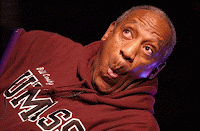Urban Policy and Corporate Dominance
In his last book, Where Do We Go from Here: Chaos or Community? Dr. Martin Luther King Jr. wrote: “Most people are totally unaware of the darkness of the cave in which the Negro is forced to live. A few individuals can break out, but the vast majority remains its prisoners. Our cities have constructed elaborate expressways and elevated skyways, and white Americans speed from suburb to inner city through vast pockets of black deprivation without ever getting a glimpse of the suffering and misery in their midst.” American urban ghettos are even more devastated today than they were 40 years ago when Dr. King wrote those words. What is the reason for this? By way of explanation, by the early 1970s, America’s central cities started to crumble under the weight of globalization and deindustrialization. Manufacturing jobs were being exported en masse . At the same time, there was no place for the masses of unskilled and semi-skilled laborers in the new technology sector that sprung up to repl...





